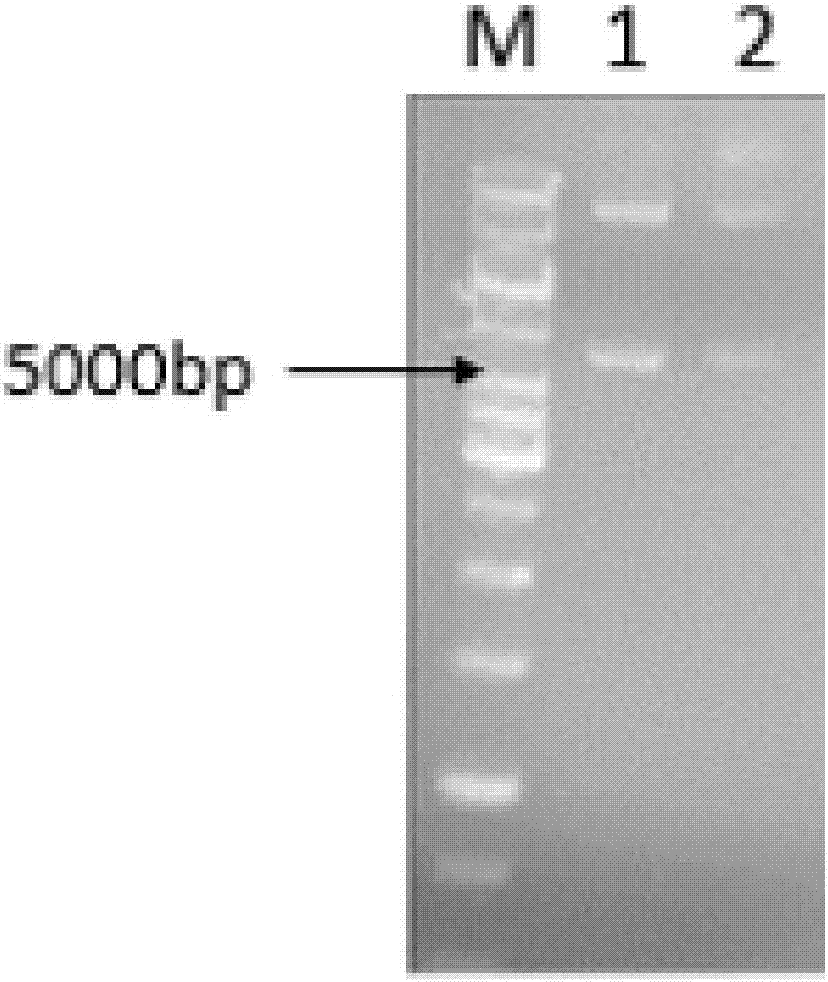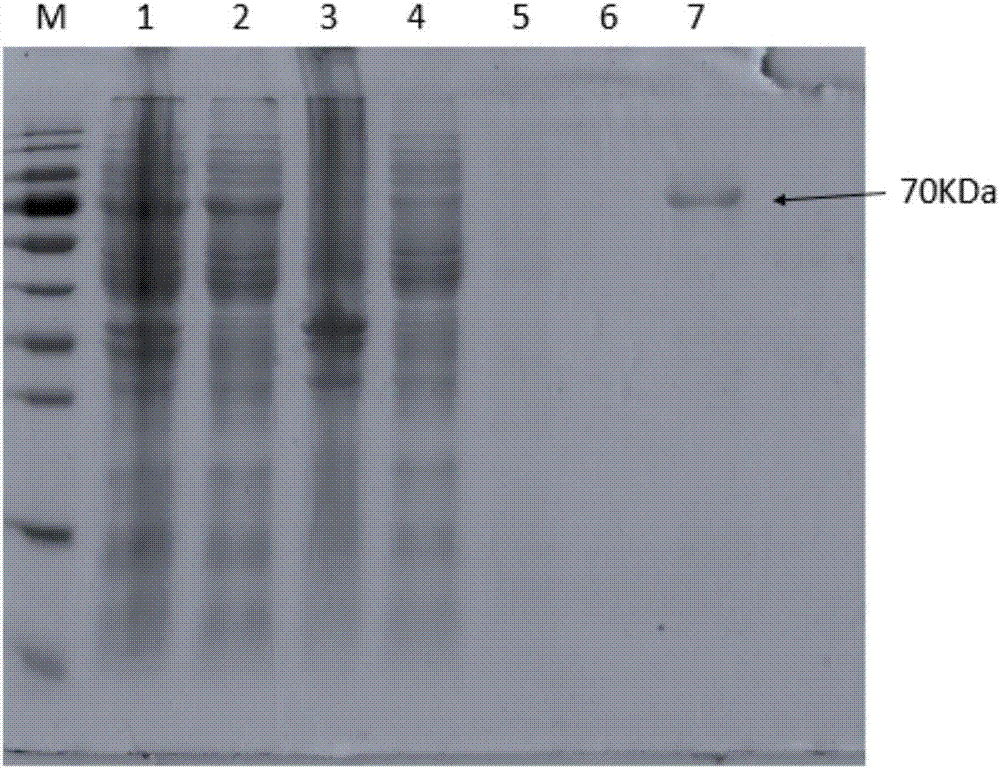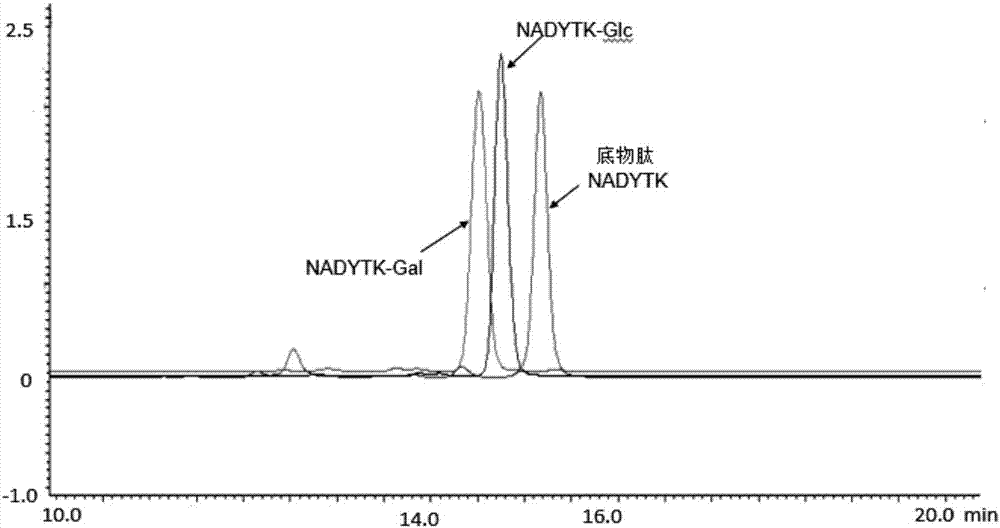N glycosyl transferase AaNGT and application thereof
A glycosyltransferase, glycosylation technology, applied in the directions of transferase, application, enzyme, etc., can solve problems such as high cost and complicated steps
- Summary
- Abstract
- Description
- Claims
- Application Information
AI Technical Summary
Problems solved by technology
Method used
Image
Examples
Embodiment 1
[0029] Embodiment 1: Preparation of N-glycosyltransferase AaNGT
[0030] 1. Construction of expression strains
[0031] Transform the plasmid synthesized by GenScript into BL21 competent cells, heat shock at 42°C for 1 min, and spread on Amp plate. Pick a single colony into a 5ml test tube culture medium at 37°C and 200rpm for 12h, and verify the plasmid. The results of plasmid agarose gel electrophoresis figure 1 .
[0032] 2. Expression and purification of AaNGT protein
[0033] Pick a single colony BL21pET45b-AaNGT into 50ml LB medium (containing 50ug / ml ampicillin Amp) and activate at 200rpm at 37°C for 12h. Then expand the culture, transfer the bacterial solution to 1L culture medium (containing 50ug / ml ampicillin Amp), incubate at 200rpm at 37°C for about 3.5h, measure the OD value, when the OD 600 When the value is 0.6, ice-bath for 20 minutes, and then add 400 μL of 0.5 M IPTG to induce protein expression (16° C. 200 rpm). After 20 hours of induction, collect the...
Embodiment 2
[0036] Example 2: Application of N-glycosyltransferase AaNGT in polypeptide glycosylation modification
[0037] 1. Determination of enzyme activity:
[0038] The substrate peptide for the determination of enzyme activity is the fluorescently labeled hexapeptide DANYTK synthesized by Nanjing GenScript Company. Under the catalysis of NGT, it reacts with UDP-Glc or UDP-Gal respectively. The reaction solution is detected by HPLC fluorescence detector. The system is shown in Table 1-3:
[0039] Table 1-3 AaNGT enzyme activity detection reaction system
[0040]
[0041] For the reaction results, see image 3 , found that AaNGT can use UDP-Glc and UDP-Gal to modify polypeptides containing glycosylation sequences, and then perform pristine analysis on the products. The mass spectrometry results are shown in Figure 4 .
[0042] 2. Determination of optimum pH:
[0043]In order to explore the optimal pH of AaNGT, we selected different pH buffers, HAc (5.0, 6.0) PBS (6.0, 7.0, 8....
PUM
 Login to View More
Login to View More Abstract
Description
Claims
Application Information
 Login to View More
Login to View More - R&D
- Intellectual Property
- Life Sciences
- Materials
- Tech Scout
- Unparalleled Data Quality
- Higher Quality Content
- 60% Fewer Hallucinations
Browse by: Latest US Patents, China's latest patents, Technical Efficacy Thesaurus, Application Domain, Technology Topic, Popular Technical Reports.
© 2025 PatSnap. All rights reserved.Legal|Privacy policy|Modern Slavery Act Transparency Statement|Sitemap|About US| Contact US: help@patsnap.com



